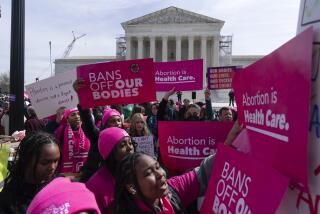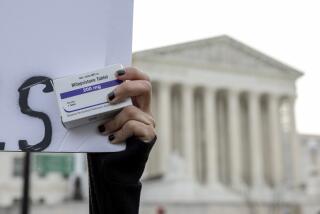FDA reconsiders generic drug warning labels
In a recent post, I noted the Catch-22 that the Supreme Court insists Congress created with its fast-track approvals for generic drugs. Those who are injured by a brand-name drug can win compensation from the manufacturer if they can show the drug was unreasonably dangerous or that its warning label didn’t disclose the risks properly. But those injured by a generic medicine can’t hold the manufacturer liable as long as the drug maker used the same active ingredients and displayed the same warnings as the brand-name drug.
The Food and Drug Administration has been considering changes to its labeling rules aimed at giving generic drug users more protection. And last week, the Obama administration filed notice that the FDA’s efforts are coming closer to bearing fruit.
According to the notice, the FDA is working on a rule that would “revise and clarify procedures for changes to the labeling” of approved drugs, whether they be name brand names, generics or biologics. The change would either enable or require -- it’s not clear from the limited information released by the FDA -- drug makers to make public possible changes to their warnings while the FDA was considering them. And it would make clear that both the brand-name and the generic versions of the drug would have to change their warning labels in the event that the FDA acted on a proposed change emanating from either camp.
The FDA is expected to formally propose its new rule sometime in September.
At issue is something called a “changes being effected” supplement. When drug makers learn of adverse reactions to their products or have new reasons to doubt the adequacy of their warning labels, they’re obligated to inform the FDA. The makers of brand-name drugs can seek approval for new warnings and are allowed to alert the public about such developments through a “changes being effected” supplement before the FDA acts.
Generic drug makers aren’t allowed to do that, however, even though they are required to tell the FDA about new evidence that might demand a change in their warning labels. They have to wait until the FDA formally decides that the warning label for that drug -- and its brand-name counterparts -- must be changed. If the brand-name version is no longer being marketed, the FDA has some flexibility to work with the makers of generic versions to update their labels, a spokeswoman for the FDA said.
The notice filed Wednesday says the FDA’s new rules “would create parity” between brand-name and generic drug makers “with respect to submission of [changes being effected] labeling supplements.” That strongly suggests generic drug makers would be able to make unilateral changes to their warning labels too.
The implication of the new rule is that it would reopen the door to lawsuits by such victims as Karen Bartlett, who was disfigured and nearly blinded by an adverse reaction to a generic anti-inflammatory drug. The Supreme Court overturned a New Hampshire jury’s decision to award Bartlett $21 million, saying that as long as the drug manufacturer complied with federal requirements to use the same formulation and warning label as the brand-name product, it could not be held liable under New Hampshire law for selling an unreasonably dangerous drug. Justice Samuel A. Alito Jr. said the state law put generic drug makers in an impossible bind because the only way they could avoid liability for products that prove to be unreasonably dangerous would be to change the warning labels that federal law forbids them to alter.
The FDA’s new approach, however, may permit generic drug makers to give supplemental warnings about new or heightened risks before the agency formally approves changes to the label for the brand-name and generic versions of the drug. That, in turn, would invite lawyers for injured patients to argue in court that generic drugs were unreasonably dangerous if they could have carried such an extra warning but didn’t.
The trade association for generic drug makers sounded a cautious note about the FDA’s minimally detailed proposal. “Our members have a long history of working closely with FDA to ensure that Americans have access to safe, affordable generic medicines, and we look forward to working with FDA on this important issue,” said Ralph G. Neas, head of the Generic Pharmaceutical Assn.
ALSO:
Five reasons to stay away from Texas right now
Hawthorne police shoot dog, and outraged readers fire back
Follow Jon Healey on Twitter @jcahealey
More to Read
A cure for the common opinion
Get thought-provoking perspectives with our weekly newsletter.
You may occasionally receive promotional content from the Los Angeles Times.







